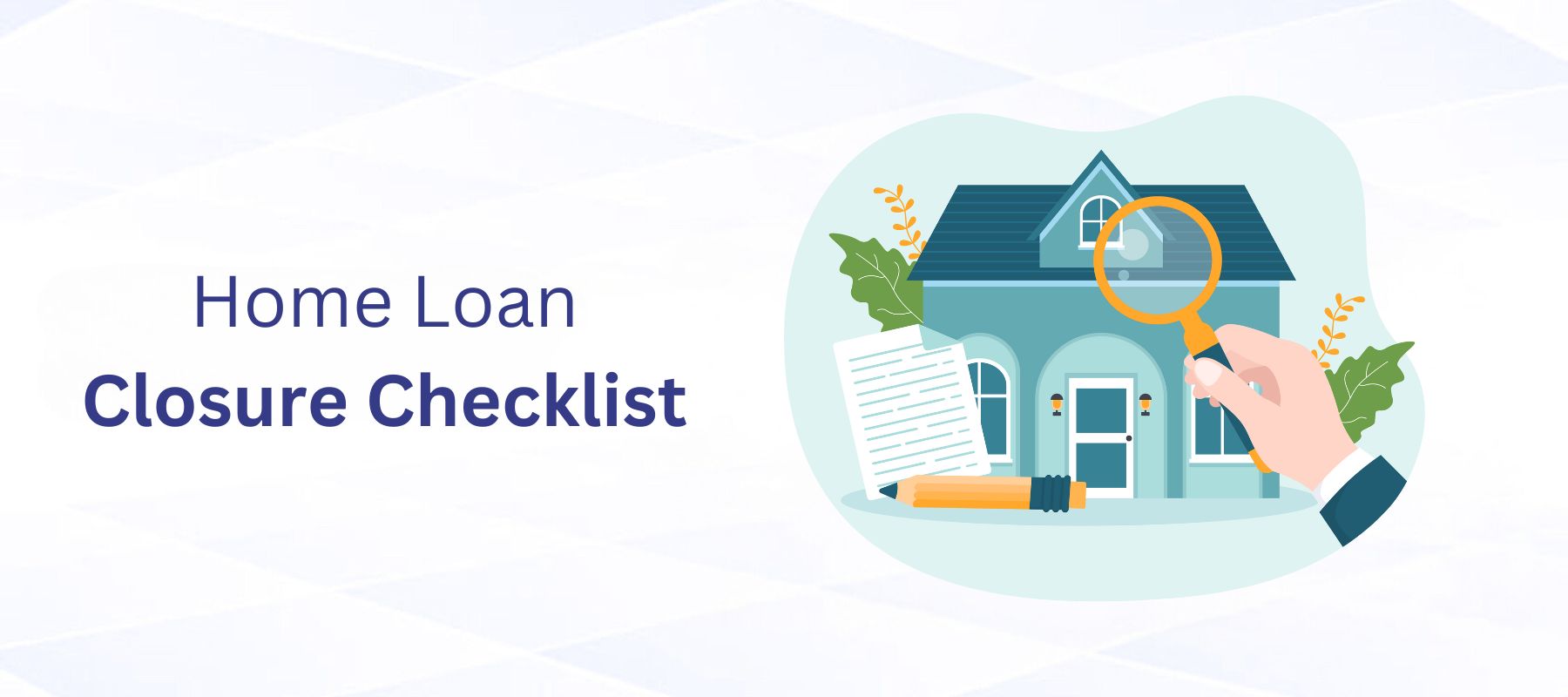Special Offers




Special Offers




30-Sep-2024 | Home Loan

Home Loan Closure Checklist: While you celebrate the debt-free house, after paying the final installment of your home loan, you must be careful while closing a home loan. There is a comprehensive list of documents required for marking the end of your repayment and full ownership of your property. However, this process can be a little complex with multiple steps but paying attention to every detail and keeping records will not only give you peace of mind but also confirm your ownership of property.
While you close a home loan, there is a need to check upon several aspects for a successful home loan closure. Let’s have a look at the home loan closure checklist:
Once the home loan closure is done, the primary thing you need to do is to request the bank/lender for the original property documents that you submitted at the time of the loan application. These are mainly title deeds, sales deeds, power of attorney, and other related documents. Once you receive these documents, ensure that they are in the same condition as they were handed over. Check every document to confirm that nothing is missing from them. After thorough checking, keep these documents safe and also keep a copy or two of these documents.
No Due Certificate is a legal/official statement that confirms that you have paid the entire loan amount, including all charges. When you close your home loan, the lender issues an NDC (No Due Certificate) which serves as a formal confirmation that your loan is completely paid off and the lender has no legal claim over your property anymore. Once you have received the No Due Certificate, make sure all details are accurate(your name, loan number, and no due statement). Keep that certificate along with your original property documents, with multiple copies of the same for the safe side. By performing that task you can protect yourself from any legal complications in the future.
To keep your future loan application process smoother, ensure that your records are updated. It is essential to keep a strict eye on your credit history and loan statement. Make sure these details are updated by your lender. Such records are vital as they validate your creditworthiness and showcase your track record of debt repayment. It ensures that your legal and financial documentation is accurate. This is important to formally announce you as the owner of that property without any disputes. Keeping the records updated helps in ensuring homeownership, avoiding disputes, and keeping financial clarity.
One of the primary steps in closing a home loan is verifying that your all dues (principal amount, interest amount, late fees if any) have been cleared. Start by comparing the total loan amount with your home loan statement. Obtain a loan statement from the financial institution which includes all details. This ensures that no amount is outstanding or your loan account and everything is settled. Maintain updated repayment loan records to attain advantages like competitive interest rates and improved home loan criteria for future loans. It ensures financial security which provides a strong legal base. If there are no remaining dues, the lender removes encumbrance from your property, which ensures your property has a clear title.
When you apply for a home loan, it’s common for lenders to request post-dated cheques as a precaution against a potential default on any EMIs. These are typically post-dated and automatically debited from your bank account to the lender’s account as monthly repayments of home loans. It’s essential to collect these cheques once you have successfully repaid the loan without any missed payments. This step eliminates the unauthorized use of these cheques. After retrieving these cheques from a lender you should mark them as cancelled. This is a small step in ensuring that your home loan is fully settled with no future complications.
Meticulously completing all these steps, ensures that you have completed the process of home loan closure with all legal and financial documentation or verification of lender. After that, you are free from all legal or financial obligations related to the home loan. Once this process ends, you can enjoy the peace of mind that comes with homeownership and no legal or financial obligations.